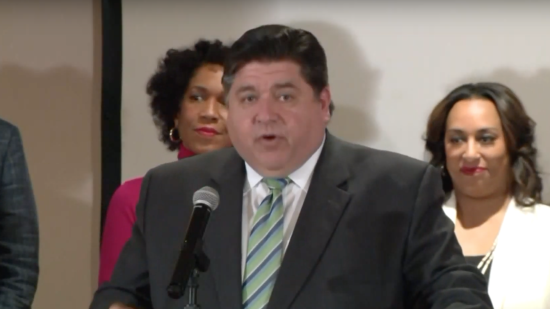Governor JB Pritzker has granted more than 11,000 pardons for misdemeanor marijuana convictions ahead of Illinois’ January 1 statewide legalization, according to the Associated Press.
Governor Pritzker said the pardons were necessary measures to end “the 50-year-long war on cannabis." The state is the 11th in the U.S. to legalize recreational weed.
"Tomorrow when adult-use cannabis becomes legal, pay attention to the fact that we are beginning to accomplish four very important things: We are ending the 50-year long war on cannabis. We are restoring rights to many tens of thousands of Illinoisans. We are bringing regulation and safety to a previously unsafe and illegal market. And we are creating a new industry that puts equity at its very core," said Pritzker last Tuesday.
The governor’s office acknowledged the disproportionate impact that the War on Drugs and low-level marijuana convictions have had on Black and brown people. Statements from various officials implied that acknowledging the racial grievance was the key step in a successful, lucrative and legal marijuana market.
Pritzker made the pardon announcement at Chicago’s South Side, Trinity United Church of Christ. Cook County State’s Attorney Kim Foxx also correlated legalizing marijuana with benefiting communities of color.
"Today we took another step toward justice, as we continue to address the failed War on Drugs and the disproportionate impact it had on communities of color," said Foxx according to ABC 7.
"Clearing records under this revolutionary new law will not only open doors for thousands of families but will create stronger, safer communities as well," she added. "I'm proud to work alongside Governor Pritzker and other leaders as we make criminal justice reform a top priority in Cook County and across Illinois."
Toi Hutchinson, a former state senator turned senior adviser to Pritzker on marijuana policy expressed optimism for those previously discriminated against.
“Those who were unfairly targeted by discriminatory drug laws can finally get ahead and build a new future for themselves and their families,” he said.
Chicagoans with marijuana convictions will have various ways to clear their records based on the amount of cannabis involved in their case and whether or not there was a formal conviction.
Arrest records that did not result in a conviction up to 30 grams will automatically be expunged. Convictions involving 30 grams or less, estimated by state officials to be around 116,000, will go through a process: the Illinois State Police will identify those convictions and send applicable records to the state’s Prisoner Review Board, who will then forward eligible cases to the governor’s office for pardons.
Those convicted of offenses involving between 30 and 500 grams can file court petitions to have their records cleared independently.
Chicago’s first day of legal marijuana netted the state nearly $3.2 million in sales, and The Illinois Department of Financial and Professional Regulation reported 77,128 transactions.
"I wanted to be first in line because I have waited 46 years for this moment," state resident Arnold Winslow told NBC 5.
Winslow said he hoped to frame the gram of weed he purchased to "have a momento.”
